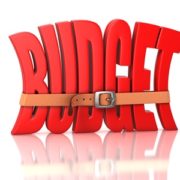Money coming your way? Don’t waste it, invest it!
 Are you about to inherit a small fortune? Have you been awarded a sizeable compensation payment or had a serious lottery win? Or maybe you are expecting a retrenchment package? If so, you need to think carefully before you decide what to do with your new found ‘wealth’.
Are you about to inherit a small fortune? Have you been awarded a sizeable compensation payment or had a serious lottery win? Or maybe you are expecting a retrenchment package? If so, you need to think carefully before you decide what to do with your new found ‘wealth’.
Certainly you should consider paying off some of your debt, particularly if it’s getting hard to handle. You may also want to buy one or two useful items to make life more comfortable, but it makes sense to put the bulk of it to work for your future well-being – through investing.
Many Australians see investing as something other people do. They either don’t know how to go about it, or think they need a lot of money to make it worthwhile. Yet investing sensibly gives the average
Australian opportunities to transform ‘windfalls’ into longer term security.
In fact, most of us are investors already, through our superannuation fund which invests in a number of different investment areas, such as shares and property. An increasing number of us are taking a more direct interest, by investing in share offers such as Queensland Rail. There are various ways to invest, and numerous investments competing for your dollars.
So how can you work out what investments are best for you? You really need advice from an experienced professional financial planner who can look thoroughly at your circumstances, preferences and your attitude to risk before recommending investments suitable for your particular needs.
Source | IOOF









![happy-new-year-2013-39[1]](http://www.adelaidefinancialadvice.com/wp-content/uploads/2013/07/happy-new-year-2013-391-300x300.jpg)